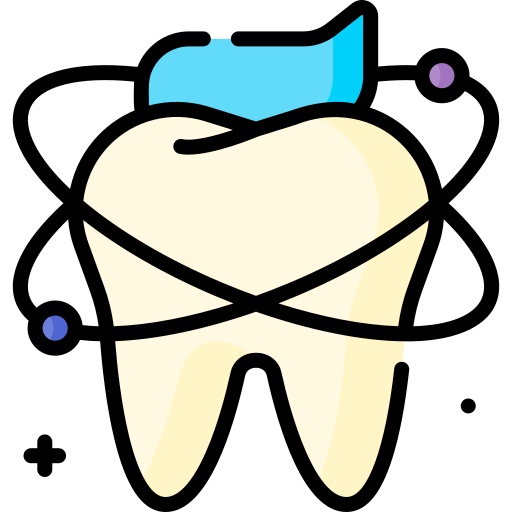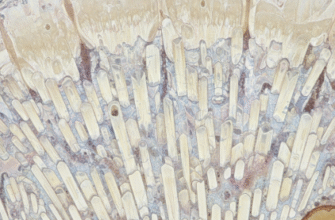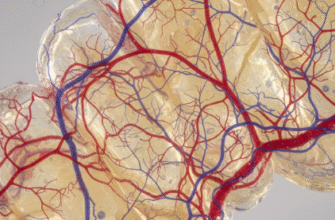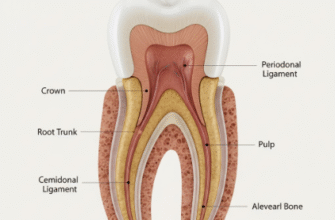A jolt. A twinge. That sudden, sharp discomfort when you bite into an ice cream cone or sip a hot coffee. Many of us have been there, and the first thought that often springs to mind is, “Oh no, a cavity!” It’s a common assumption, deeply ingrained, that sensitive teeth automatically signal tooth decay. But is this always the case? While cavities certainly can be culprits, the world of tooth sensitivity is far more nuanced. Holding your breath and hoping it goes away isn’t the best strategy, because that fleeting pain could be your mouth’s way of telling you something important.
Tooth sensitivity, or “dentin hypersensitivity” as it’s known in dental circles, typically occurs when the softer, inner part of your tooth, called dentin, becomes exposed. Dentin lies beneath the hard outer enamel and cementum (which covers the root). It contains thousands of microscopic tubules that lead directly to the tooth’s nerve center, the pulp. When these tubules are exposed, external stimuli like hot, cold, sweet, or acidic foods and drinks, or even cold air, can travel down these pathways and irritate the nerve, resulting in that familiar, unpleasant sensation.
Beyond the Cavity: Unpacking Tooth Sensitivity
It’s true that a developing cavity can make a tooth sensitive. As decay erodes the enamel, it can eventually reach the dentin, leading to sensitivity. If left untreated, the decay can progress further, potentially infecting the pulp and causing more severe pain. However, to pin all instances of tooth sensitivity on cavities would be a significant oversimplification. Think of sensitivity as a symptom, like a cough. A cough might mean a common cold, but it could also indicate allergies, asthma, or something else entirely. Similarly, sensitive teeth have a broad spectrum of potential instigators.
Common Culprits Other Than Decay
Let’s delve into some of the frequent reasons why your teeth might be sending out those sensitive signals, reasons that have nothing to do with a new cavity forming:
- Gum Recession: This is a very common cause. Gums can recede for various reasons, including gum disease (gingivitis or periodontitis), overly aggressive brushing, or even genetics. When gums pull away from the teeth, they expose the root surfaces. Unlike the crowns of your teeth, roots aren’t covered by hard enamel; they’re protected by cementum, which is much softer and wears away more easily, exposing the dentin underneath.
- Enamel Erosion: Your tooth enamel is the hardest substance in your body, but it’s not invincible. Acid is its enemy. Consuming highly acidic foods and drinks (like citrus fruits, sodas, wine, and sports drinks) frequently can gradually dissolve enamel. Conditions like acid reflux (GERD) or bulimia, where stomach acids regularly come into contact with teeth, also cause significant erosion. As enamel thins, dentin becomes more vulnerable.
- Teeth Grinding or Clenching (Bruxism): Many people grind or clench their teeth, often unconsciously, especially during sleep. This habit puts immense pressure on your teeth, which can wear down enamel over time. It can also cause tiny cracks or fractures in the teeth, leading to sensitivity.
- Cracked Tooth or Filling: A crack in a tooth, even a microscopic one, can allow external stimuli to reach the dentin or pulp. Similarly, an old or damaged filling might have gaps or cracks around its edges, creating pathways for irritants.
- Tooth Whitening Products: While many people desire a brighter smile, some tooth whitening products, particularly those containing peroxide, can cause temporary tooth sensitivity. This usually subsides after the whitening treatment is completed or if a less concentrated product is used.
- Recent Dental Procedures: It’s not uncommon to experience some temporary sensitivity after certain dental treatments like cleanings, fillings, crown placements, or root planing. This sensitivity usually resolves on its own within a few days or weeks.
- Overly Aggressive Brushing or Hard-Bristled Toothbrush: Brushing too hard or using a toothbrush with stiff bristles can wear down enamel and also contribute to gum recession, both of which can lead to sensitivity. It’s a common misconception that harder brushing equals cleaner teeth.
- Sinus Issues: Believe it or not, sometimes the problem isn’t even directly with your teeth! The roots of your upper back teeth are located very close to your sinus cavities. If you have a sinus infection or inflammation, the pressure can be referred to these teeth, causing them to feel sensitive or ache.
Think about your daily habits. Do you often reach for a sugary soda? Do you notice yourself clenching your jaw when stressed? Sometimes, small changes can make a big difference to your dental comfort.
Don’t Play Detective: Why a Dental Visit is Crucial
While understanding the potential causes of tooth sensitivity is helpful, self-diagnosing is never a good idea. That fleeting twinge might seem minor, but ignoring it could allow a small issue to become a larger, more complex problem. If you experience new or worsening tooth sensitivity, the best course of action is always to schedule an appointment with your dentist.
Your dentist has the expertise and diagnostic tools (like x-rays and clinical examination) to accurately determine the cause of your sensitivity. Is it a simple case of needing desensitizing toothpaste, or is there an underlying issue like a hidden crack, early gum disease, or, yes, possibly a cavity? Only a professional can tell you for sure.
Persistent or sudden tooth sensitivity should not be ignored. While not always a sign of a cavity, it signals that something isn’t quite right with your oral health. Promptly consulting your dentist is key to identifying the true cause and receiving appropriate care to prevent further complications or discomfort.
Potential Pathways to Relief
Once your dentist identifies the culprit, they can recommend a tailored approach. Treatment for sensitive teeth varies widely depending on the cause:
- Desensitizing Toothpaste: For mild, generalized sensitivity, toothpastes specifically formulated for sensitive teeth can be very effective. These often contain compounds like potassium nitrate or strontium chloride that help block the transmission of sensation from the tooth surface to the nerve.
- Fluoride Application: Your dentist might apply a fluoride gel, foam, or varnish to the sensitive areas. Fluoride helps to strengthen enamel and can reduce the transmission of sensations.
- Dietary Adjustments: If acid erosion is the problem, reducing your intake of acidic foods and drinks can make a significant difference. Rinsing your mouth with water after consuming acidic items can also help neutralize acids.
- Dental Bonding or Sealants: In some cases, exposed root surfaces can be sealed with bonding resin to cover the sensitive areas.
- Gum Grafting: If sensitivity is due to significant gum recession, a gum graft procedure might be recommended. This involves taking a small piece of gum tissue from elsewhere in your mouth and using it to cover the exposed root.
- Mouthguard for Bruxism: If teeth grinding is wearing down your enamel and causing sensitivity, a custom-fitted nightguard can protect your teeth from further damage.
- Addressing Underlying Dental Work: If a faulty filling or crown is to blame, your dentist will need to repair or replace it.
- Root Canal Treatment: In severe cases where sensitivity is due to inflammation or infection of the tooth’s pulp, and other treatments haven’t worked, a root canal might be necessary to save the tooth and eliminate the pain. This is typically a last resort for sensitivity unless the pulp is irreversibly damaged.
Keeping Sensitivity at Bay: Preventive Measures
Prevention is often the best medicine. While not all causes of sensitivity are entirely preventable, good oral hygiene practices can significantly reduce your risk:
- Brush Gently: Use a soft-bristled toothbrush and gentle, circular motions. Avoid aggressive back-and-forth scrubbing.
- Don’t Over-Brush: Brushing twice a day is usually sufficient. Over-brushing can wear down enamel and irritate gums.
- Use Fluoride Toothpaste: Fluoride helps protect and strengthen enamel.
- Floss Daily: Flossing helps prevent gum disease, which can lead to recession and sensitivity.
- Limit Acidic Foods and Drinks: If you do consume them, try to do so with meals and rinse with water afterward. Avoid sipping on them throughout the day.
- Address Teeth Grinding: If you suspect you grind your teeth, talk to your dentist about solutions like a mouthguard.
- Regular Dental Check-ups and Cleanings: Professional cleanings remove plaque and tartar that can lead to gum disease, and regular check-ups allow your dentist to spot and address potential problems early, before they cause significant sensitivity.
The Takeaway on Tooth Tingles
That sharp zing from a sensitive tooth is certainly unpleasant, but it’s not an automatic sentence for a filling. As we’ve explored, the landscape of tooth sensitivity is diverse, with causes ranging from your brushing technique to your dietary habits, and even stress-induced grinding. The myth that sensitivity always equals a cavity can lead to unnecessary anxiety or, conversely, to ignoring a symptom that does warrant attention.
The key is to listen to your body. If your teeth are consistently sensitive, or if you notice a sudden change, it’s a signal to seek professional advice. Your dentist is your best ally in decoding these signals, identifying the root cause (pun intended!), and guiding you towards the most effective solution. So, the next time you experience that tell-tale twinge, remember the many possibilities, and make an appointment to get to the bottom of it. A little detective work by your dental professional can lead to a much more comfortable and healthy smile.








